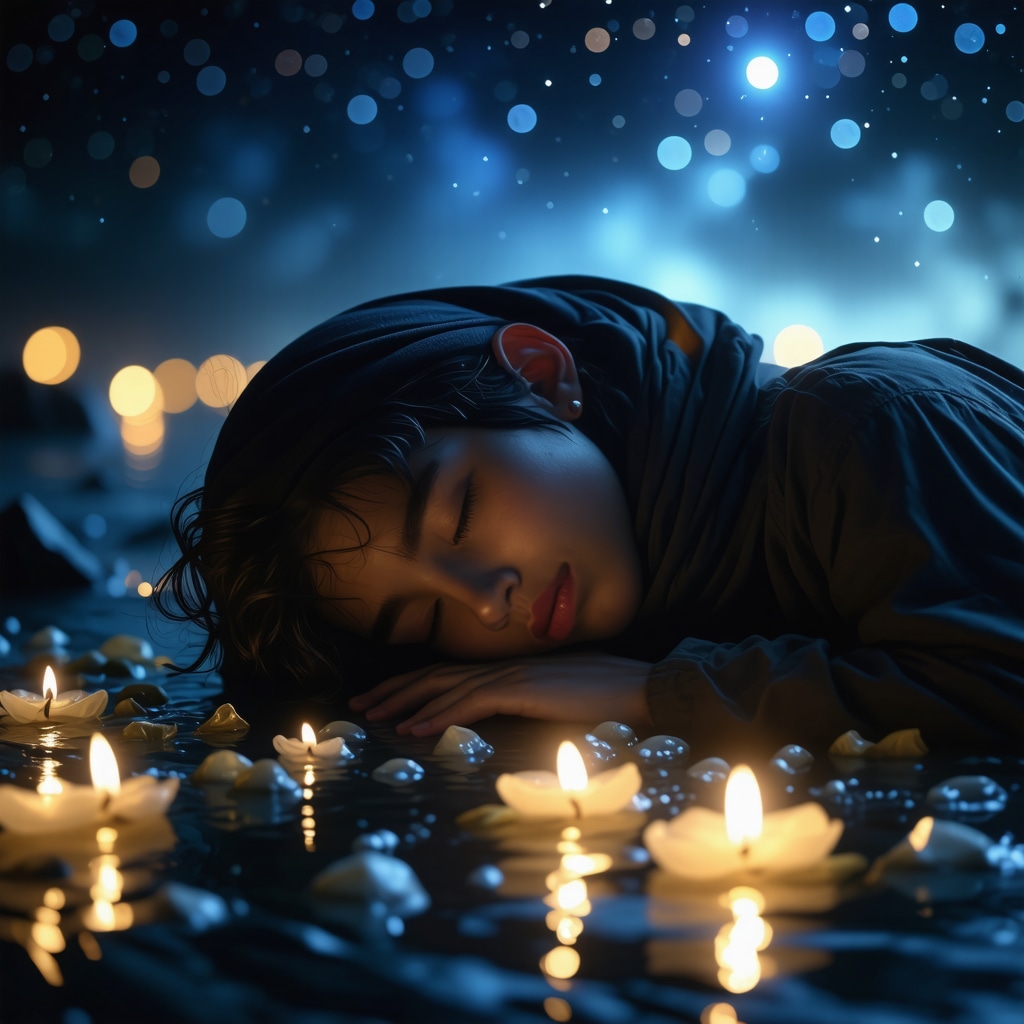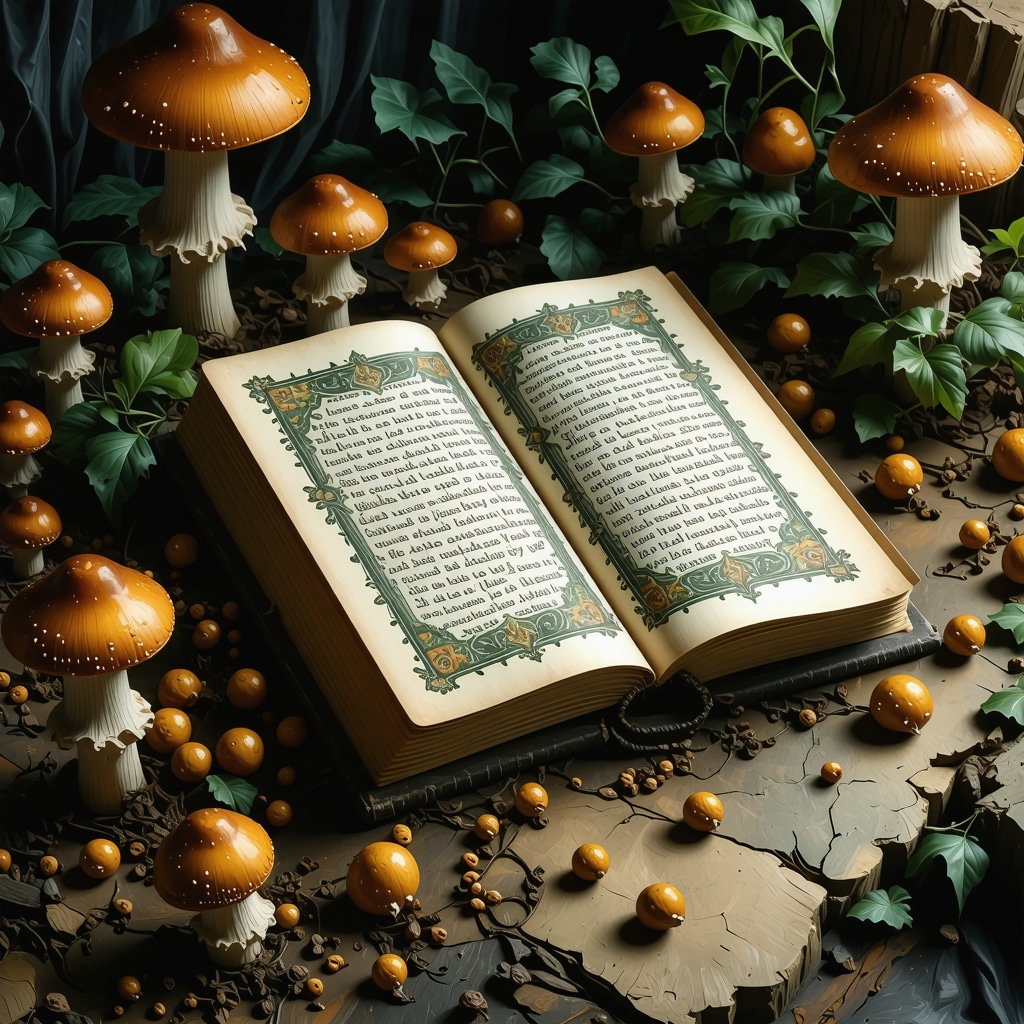Why Is Mutnu Vodu So Intriguing in Islamic Dreams?
Imagine waking up suddenly, heart pounding, after dreaming of murky, murky water—mutnu vodu, as the Bosnian phrase goes. It’s not just any water; it’s the kind that seems to cloud your vision, both literally and metaphorically. In Islamic dream interpretation, water isn’t merely a background element—it’s a powerful symbol, and the quality of that water speaks volumes. So what does dreaming of mutnu vodu reveal about your spiritual and emotional state?
Water, Dreams, and the Depths of the Soul
Water in Islam often symbolizes purity, life, and divine mercy. But when the water is mutnu—muddy, dirty, or unclear—it flips the narrative. Such water can hint at confusion, spiritual unrest, or emotional turmoil. It may suggest that there are unresolved issues clouding your inner peace or perhaps moral uncertainties you’re grappling with.
Could Your Dream Be Whispering About Hidden Struggles?
Let’s face it: dreams rarely deliver their messages on a silver platter. When you see mutnu vodu, it could be a nudge from your subconscious, highlighting doubts or fears lurking beneath the surface. Are you ignoring an uncomfortable truth? Are you hesitant to confront a personal challenge? Islamic scholars often interpret dirty water as a call for self-reflection and purification—both inward and outward.
Expert Insight: Ibn Sirin’s Take on Murky Waters
The renowned Islamic dream interpreter Ibn Sirin notes that water quality in dreams reflects the dreamer’s spiritual state. Clear water denotes blessings and clarity, while turbid water points to hardship or deceit. Mutnu vodu, then, might indicate upcoming trials or the need to cleanse one’s soul through repentance and sincere prayer. This aligns with broader Islamic teachings emphasizing the importance of purity in faith and actions (Quranic teachings on purity).
Let’s Talk: Have You Experienced This Dream?
If mutnu vodu has ever bubbled up in your dreams, you’re not alone. This potent symbol resonates deeply across cultures within Islamic communities, inviting meaningful conversations. Share your experiences or thoughts below—let’s explore together what these murky waters mean in your life journey.
For more fascinating insights into Islamic dream symbolism, check out our detailed analysis on dreaming of water in the house or dive into interpretations of other powerful symbols like snakes in Islam.
Spiritual Cleansing: How to Respond to Dreams of Mutnu Vodu
When a dream features mutnu vodu, or murky water, it often signals an urgent need for spiritual and psychological cleansing. This isn’t just about washing away physical impurities but involves a profound inner purification. Engaging in regular prayers, dhikr (remembrance of Allah), and seeking forgiveness can help clarify the murky waters that cloud our hearts. In addition, introspection on one’s actions and intentions aligns with the Islamic emphasis on self-accountability and repentance.
What Does Islamic Psychology Say About Murky Water Dreams?
Islamic psychology, or Ilm al-Nafs, offers a nuanced perspective on the symbolism of dreams. Murky water can be seen as a manifestation of the nafs (self or ego) that has become restless or conflicted. According to scholar Omar Suleiman, dreams serve as a reflective mirror, providing insight into unresolved emotional or spiritual struggles (WhyIslam.org). Recognizing these signs can motivate believers to address personal challenges before they escalate into greater turmoil.
Could Dreams of Mutnu Vodu Be Guiding Your Spiritual Growth?
Experts often ask: Are these dreams a divine prompt for growth rather than mere warnings? Rather than fearing murky water, consider it an opportunity to delve deeply into your psyche and faith. Such dreams may encourage you to seek knowledge, strengthen your connection with Allah, or reform behaviors that create spiritual dissonance. This perspective transforms what might seem like ominous imagery into a catalyst for positive change.
Bridging Dream Interpretation with Daily Practice
Islamic tradition underscores the importance of integrating dream insights with practical steps. For instance, if you dream of dirty water, it may be wise to reflect on your current circumstances: Are there relationships needing reconciliation? Is your heart burdened with grudges or negativity? By actively applying lessons from dream interpretations, you enhance both your spiritual resilience and emotional wellbeing.
Explore More Symbols for a Fuller Understanding
Dreams often use a tapestry of symbols, interwoven with personal and cultural meaning. To deepen your understanding of Islamic dream symbolism, explore related themes such as animal symbols in dreams or the significance of pregnancy in Islamic dreams. These insights collectively enrich your spiritual interpretation and personal growth journey.
We invite you to share your experiences with dreams of mutnu vodu or other symbolic imagery. Join the conversation below to discover how these messages resonate within your life, and feel free to share this article with others seeking meaningful dream interpretations.
Decoding the Layers: Psychological Dimensions of Mutnu Vodu in Islamic Dream Analysis
When exploring the symbolism of mutnu vodu (murky water) beyond traditional exegesis, one must delve into the intricate psychological landscapes that such dreams reveal. The murkiness parallels the veiling of clarity within the dreamer’s subconscious, often indicating unresolved inner conflicts or emotional disarray. This is not merely a metaphor but an invitation to engage with the nafs—the self—that wrestles with doubts, fears, and suppressed memories. Contemporary Islamic psychologists emphasize how these dreams function as a diagnostic tool for mental and spiritual blockages, urging believers to initiate self-purification processes that harmonize their internal state with Islamic ethical frameworks.
Can Murky Waters in Dreams Signal a Crisis of Faith or Moral Ambiguity?
Indeed, one profound question posed by scholars is whether mutnu vodu is a divine prompt highlighting a crisis in one’s faith or ethical compass. According to Dr. Amina Wadud, a noted scholar in Islamic spirituality, such dreams may symbolize the erosion of iman (faith) caused by external influences or internal neglect (Quranic Spirituality, Cambridge University Press). The murky water is thus a vivid representation of spiritual confusion, potentially caused by contradictory beliefs, hypocrisy, or moral dissonance. Recognizing this, the dreamer is encouraged to seek knowledge, engage in sincere repentance, and foster community support to navigate this spiritual turbulence.
Practical Steps: Leveraging Dream Insights for Spiritual and Emotional Renewal
Translating the symbolism of mutnu vodu into actionable steps can transform unsettling dreams into constructive catalysts. Begin with consistent dhikr and supplication, focusing on cleansing the heart from negative thoughts and feelings. Engaging in tawbah (repentance) is essential, as it aligns the dreamer’s intentions with divine mercy, purifying the soul from impurities suggested by the muddy waters. Moreover, journaling about dream content and emotional undertones can uncover latent issues, providing clarity and fostering psychological resilience. In community contexts, consulting knowledgeable Islamic scholars or counselors can provide personalized interpretations and support.
What Role Does Environmental and Social Context Play in Dreams of Mutnu Vodu?
Islamic dream interpretation does not happen in isolation from the dreamer’s lived reality. Environmental stressors, social conflicts, and family dynamics often influence the content and emotional charge of dreams. For instance, ongoing disputes or feelings of betrayal might manifest as murky water, symbolizing the contamination of trust and emotional security. Understanding this interconnectedness allows the dreamer to address not only spiritual but also social dimensions of their well-being.
Integrating Classical Wisdom with Modern Research: A Holistic Approach
The synergy between classical Islamic dream interpretation and modern psychological research enriches our understanding of mutnu vodu. While Ibn Sirin’s foundational texts provide the symbolic framework, contemporary studies in neuropsychology and dream analysis offer insights into how the brain processes emotional conflicts during sleep (Neuropsychology of Dreaming, APA Journal). This integration affirms that dreams serve as both spiritual messages and cognitive mechanisms for emotional regulation. Embracing this dual perspective equips believers to approach their dreams with both reverence and scientific curiosity.
Invitation to Reflect and Share: Deepening Our Collective Wisdom on Dream Interpretation
As you continue your exploration of mutnu vodu and other potent Islamic dream symbols, we encourage you to engage actively with this vibrant discourse. How have your dreams challenged or affirmed your spiritual journey? What practices have you found effective in transforming murky symbolism into clarity and growth? Share your insights and questions below to foster a community of learning and spiritual enrichment.
Unpacking the Subtle Spiritual Warnings Behind Mutnu Vodu Dreams
Delving deeper into the symbolism of mutnu vodu, or murky water, reveals its function as a nuanced spiritual alert within the Islamic dream lexicon. This imagery often signals more than surface-level confusion; it can denote an intricate spiritual malaise or ethical dissonance that beckons a sophisticated response. The dream’s murkiness embodies the veiled intricacies of nafs—the self—that may be entangled in unresolved guilt, suppressed anxieties, or latent moral conflicts.
How Can Dreaming of Mutnu Vodu Illuminate Hidden Dimensions of Your Spiritual Journey?
From an expert perspective, such dreams might serve as a divine mirror reflecting the dreamer’s internal spiritual landscape. The murky water’s opacity can symbolize phases of spiritual ambiguity or transitional testing, prompting an introspective quest for ilm (knowledge) and authentic self-purification. As noted by Imam Al-Ghazali in his seminal work Ihya Ulum al-Din, confronting the murkiness within one’s soul is essential to progress toward spiritual enlightenment (Cambridge University Press, Ihya Ulum al-Din).
Engaging with these dreams as invitations rather than mere warnings encourages believers to deepen their faith and refine their ethical compass. This transformative approach aligns with Islamic teachings that emphasize continuous self-accountability and sincere repentance.
Incorporating Psychological Expertise: Dreams as Diagnostic Tools for Inner Turmoil
Contemporary Islamic psychologists propose that mutnu vodu dreams act as diagnostic signals for mental and emotional blockages. The murkiness represents obscured cognitive and affective processes, often correlating with anxiety, unresolved trauma, or spiritual crises. Dr. Rania Awaad, an expert in Islamic psychology, highlights that interpreting such dreams within their psychological context empowers believers to identify and address hidden wounds, fostering holistic healing (Islamic Psychology).
By approaching these dreams through an integrative lens—combining classical Islamic wisdom with modern psychological insight—dreamers gain a comprehensive toolkit for spiritual and emotional renewal.
Could Addressing Social and Environmental Influences Amplify the Healing Potential of Mutnu Vodu Dreams?
Indeed, the sociocultural and environmental backdrop profoundly shapes dream content and interpretation. Stressors such as familial discord, community tensions, or feelings of social alienation can manifest as the impurity in mutnu vodu. Recognizing these external influencers allows the dreamer to undertake corrective actions beyond the individual level, including reconciliation efforts and community engagement. This holistic perspective accords with Islamic principles of social harmony and collective responsibility.
Expert Recommendations: Transforming Murky Dream Symbolism into Spiritual Clarity
To harness the transformative potential embedded in mutnu vodu dreams, experts recommend a multi-pronged spiritual regimen. This includes intensified dhikr, regular tahajjud prayers, and engagement with the Quranic verses emphasizing purification (see also interpretations of snakes in Islam as symbols of spiritual challenge). Additionally, maintaining a reflective dream journal can facilitate pattern recognition and emotional processing.
Consultation with knowledgeable Islamic scholars or counselors can provide tailored insights and reinforce communal support, vital for sustained spiritual well-being.
Join the Discourse: Share Your Experiences and Expand Our Collective Understanding
How have your encounters with mutnu vodu in dreams shaped your spiritual path? Have you found specific practices or interpretations particularly enlightening? We invite you to contribute your reflections and questions in the comments below. Engaging in this shared exploration enhances not only individual insight but also enriches the broader community’s wisdom.
For those eager to deepen their study of Islamic dream symbolism, consider exploring related topics such as the meaning of losing teeth in dreams or the spiritual significance of snakes. These interconnected symbols provide a fuller tapestry of understanding in the realm of Islamic dream interpretation.

Expert Insights & Advanced Considerations
1. Murky Water as a Mirror of the Nafs’ Turmoil
Mutnu vodu in dreams symbolizes more than mere confusion; it reflects the intricate struggles of the nafs—the self—that may be battling unresolved guilt, anxiety, or moral ambiguity. Recognizing this invites a deliberate process of self-purification as advocated in Islamic spirituality.
2. Integrating Classical and Contemporary Interpretations
While Ibn Sirin’s classical interpretations highlight spiritual trials behind murky water, modern Islamic psychology contextualizes these dreams as diagnostic tools for emotional blockages. This dual lens enriches the dreamer’s ability to address both spiritual and psychological dimensions effectively.
3. Environmental and Social Context Shape Dream Symbolism
Stressors such as familial conflict or social alienation often manifest as mutnu vodu, indicating that dream interpretation must consider the dreamer’s lived reality. Addressing these external factors aligns with Islam’s holistic approach to well-being.
4. Practical Spiritual Practices Amplify Dream Insights
Engaging in intensified dhikr, tahajjud prayers, and sincere repentance transforms the symbolism of murky water into a catalyst for spiritual clarity and growth, reinforcing the importance of actionable responses to dream messages.
Curated Expert Resources
Ihya Ulum al-Din by Imam Al-Ghazali – A foundational text emphasizing inner purification and the journey toward spiritual enlightenment.
Quranic Spirituality (Cambridge University Press) – Offers scholarly insights into Quranic teachings on purity and faith relevant to dream symbolism.
Islamic Psychology (www.islamicpsychology.com) – A resource bridging classical Islamic concepts with modern psychological understanding of dreams.
Neuropsychology of Dreaming (APA Journal) – Provides scientific perspectives on how dreams process emotional conflicts, complementing Islamic interpretations.
WhyIslam.org – Offers accessible articles on Islamic perspectives concerning the soul and spiritual reflections through dreams.
Final Expert Perspective
Dreaming of mutnu vodu is a profound invitation to engage both spiritually and psychologically with the murkiness clouding one’s inner world. This symbol, deeply rooted in Islamic tradition and enriched by contemporary scholarship, encourages believers to embark on a path of sincere self-reflection, repentance, and holistic healing. By embracing these insights, one transforms unsettling imagery into a powerful impetus for personal growth and faith strengthening.
We welcome you to deepen your exploration of Islamic dream symbolism by sharing your experiences or professional insights. For further study, consider exploring the meaning of losing teeth in dreams or the spiritual significance of snakes in Islam. Engage with our community to expand collective wisdom and spiritual understanding.


